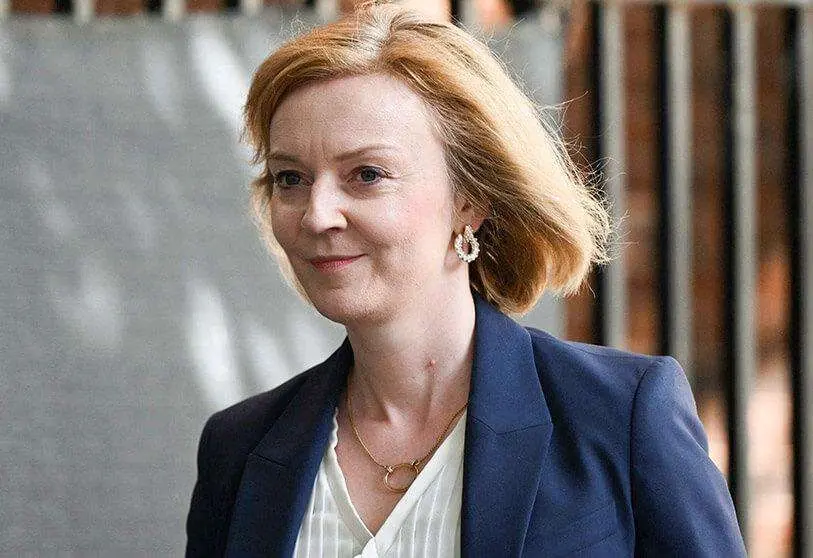Truss balloon punctured

Britons who believed in the promises that Britain's exit from the European Union would simultaneously usher them into paradise are getting a growing dose of reality almost daily, and it's not exactly one to send up a rocket of jubilation. The recent stumble of resigned prime minister Liz Truss is the latest demonstration that the country's governance does not appear to be in the best of hands.
Truss, with only 45 days as tenant of 10 Downing Street, has smashed the record for brevity held since 1927 by her remote predecessor, the also Conservative George Canning, who resisted 119 days, although in that case it was pneumonia that was the culprit. In the case of the flamboyant "new Thatcher" (it is clear that the appellative was exaggerated), it was the presentation of a budget that made the hair stand on end for all those who know how to add and subtract, which in the United Kingdom seems to be everyone: some, because they did the maths and the numbers didn't add up; others, because they suddenly realised that the country had been left on its own, without the recovery and resilience funds that EU member states enjoy as a lifeline; and all in general, because they considered Truss's fiscal plan a mixture of improvisation and populism. And, on top of them all, international investors stampeded, as the pound plummeted to its lowest level in 40 years.
The British have also had the opportunity to witness the fleeting succession of tenants in the prime minister's residence - three in barely a biennium - in a career that makes them increasingly resemble Italian governments, which tend to last about 18 months on average. You may also have noticed that British politics is more caste-based - Pablo Iglesias dixit - than ever, since all the dizzying changes of recent times are being settled among the MPs of the Conservative Party, supported by its famous 1922 Committee.
It is true that in the election of Liz Truss the last word was left to the totality of the party's militants, who preferred a lady of fickle and changeable convictions to the greater rigour of a proven expert in finance and economics like Rishi Shunak. But he lost the final because it must have weighed more heavily on the minds of the party members that, as a seasoned billionaire and the son of immigrants, it would not be good to put him in charge of the country when the crisis is hitting harder and harder at a time when more and more layers of the population are being hit hard.
If Shunak's resignation as finance minister was the trigger that brought down Boris Johnson, his successor under Truss, Kwasi Kwarteng, who drew up the crazy fiscal plan of slashing taxes and multiplying subsidies, was sacked by his boss in a desperate attempt by the latter to hold on to his seat. It was a vain attempt, because the resignation of Interior Minister Suella Braverman showed that he could not go on another day.
In the party's attempts to replace Truss by internal election, it is clear to the observer on the European side of the Channel that such a procedure robs the voters of a decision that should be entirely up to them. Without the polls being a substitute for the ballot box, it should be borne in mind that the almost 30-point lead they now give Labour is a sufficient indicator of the British people's weariness with this succession of Tory failures, and new elections should be called. Logically, this is what Labour leader Keir Starmer has called for, although it will be up to the Conservative Sanhedrin to decide whether or not to hold an election.
In the midst of the hubbub, voices have been raised calling for Boris Johnson's return. It would be yet another anomaly, which would deepen the feeling that everything is being cooked up among the caste. Centuries ago, the English took the so-called government of the notables to its highest levels. Current events accentuate the impression that the most capable people do not seem to be at the helm of the country.

